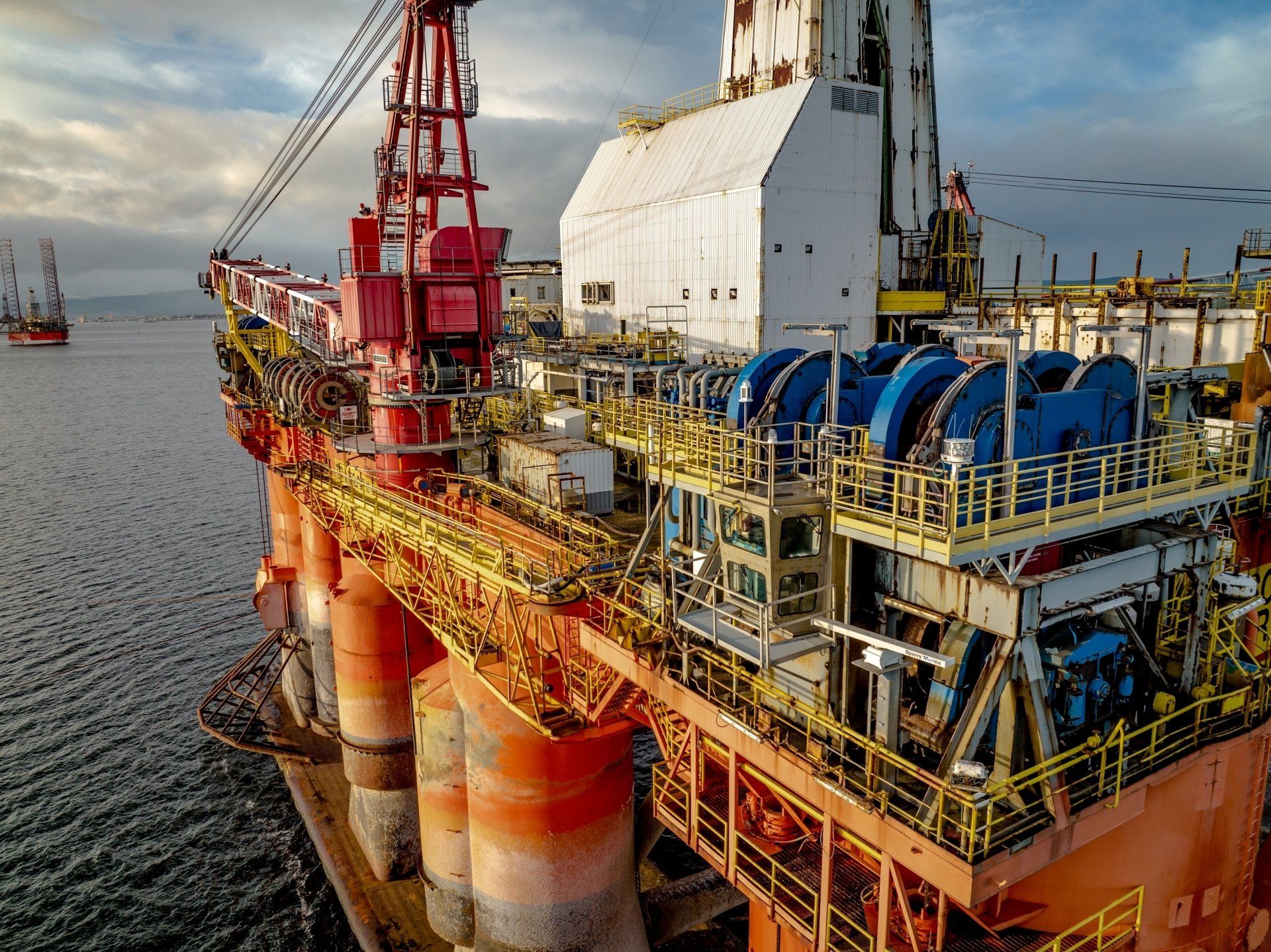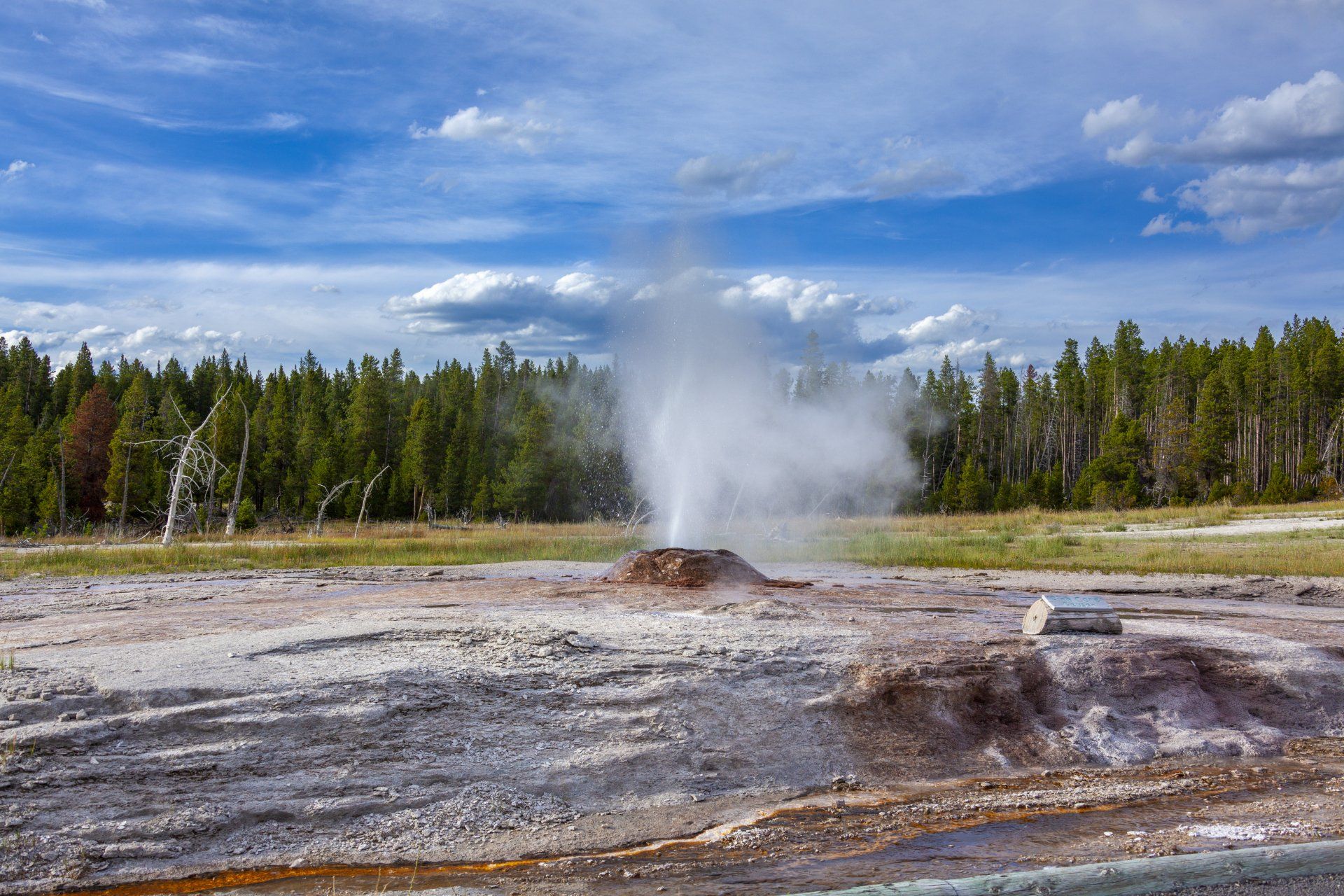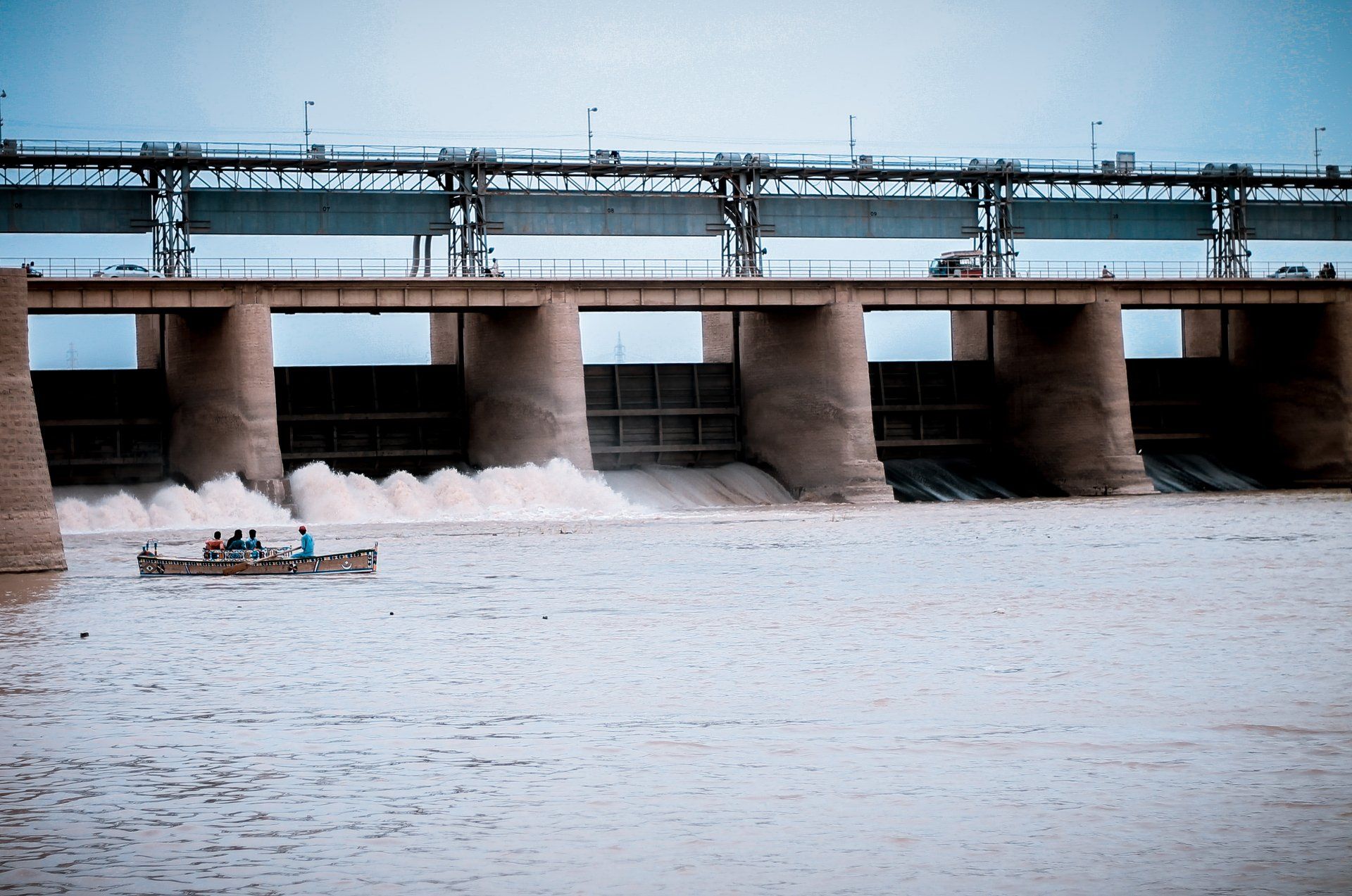Drilling
C O U R S E S
Quick Links
This course reviews casing designs and builds on them to
address well design challenges associated with deep, extended reach and HPHT. Participants will develop an understanding of
the composition and properties of drilling and completion fluid
systems and additives.
This course is designed for drilling engineers seeking to develop an advanced understanding of casing design.
-
Course Objectives:
At the end of this course participants will be able to:
- Know how to optimise preliminary casing design
- Perform casing seat selection to satisfy a range of well performance parameters and barrier standards
- Select suitable casing sizes to meet well completion objectives
- Produce a workable casing scheme utilising casing strings, liners and expandable tubular
-
Course Content
- Overview of casing classifications and definitions
- Data required for dasing design industry standards and specifications
- Formation strength, kick tolerance and casing seat selection.
- Pipe performance, tolerances and properties
- Casing connection qualifications and selection
- Installation, drilling and service loads for casing
- Casing design and safety factors
- Wellhead selection
- Special design considerations
-
Programme Schedule
Day 1
Introduction, Course Objectives
- Functions of Casing
- Well Construction Standards
- The Casing Design Process
- Casing Design Data Requirements
Preliminary Casing Design
- Pore Pressures and Formation Strengths
- Kick Tolerance and Casing Seat Selection
- Casing Setting Depth and Sizing for Well Construction (Seat Selection)
- Barriers
- Well Abandonment Considerations
Day 2
Oil Field Tubulars
- Industry Standards, Specifications and Documentation
- The Manufacturing Process
- API 5CT
- Mechanical Properties and Temperature Effects
- Application of ISO 15156 – Materials for Use in Sour Service
Casing Performance Properties
- Conventional Casing Strength Limits as per API Bulletin 5C3
- Alternative Limits proposed in ISO/TR 10400
- Modes of Failure, Burst, Collapse, Axial, Tri-axial and Joint Integrity
- Buckling – Resistance and Effective Tension
- Design and Safety Factors
Casing Connections
- Introduction to Casing Connections
- ISO 13679 Connection Testing
- Selection of Pre-Qualified Connections
Day 3
Casing Loads
- Overview of Design Loads
- Fluid Gradients and Applied Pressures
- Critical Internal and External Pressure Scenarios
- Load Case Selection
- Production Casing Loads
- Intermediate Casing Loads
- Surface Casing Loads
Manual Design Process
- Uniaxial Pipe Selection
- Installation Loads
- As Cemented Loads
Day 4
Service Loads
- Load Identification, Production Thermal Profiles
- Thermal Effects on Fluids, Pipe Strength and Tension
- Trapped Annular Pressures
- Impact of Cement on Buckling
- Biaxial Collapse Assessment
- Triaxial Burst Assessment
- Pressure Testing
Day 5
Special Design Considerations
- Accounting for Casing Wear and Corrosion
- Deterministic vs Probabilistic Casing Design
- Casing Design for Thermal wells
- Casing Design for HPHT wells
This course introduces basic geology, petrophysics, exploration
methods, completions, and well intervention to highlight their
interface with drilling operations; providing participants with
an introduction to the terminology, equipment, operations and
process during well construction.
This course is designed for new drilling engineers, supervisors
and managers moving into drilling engineering and well
construction, wellsite geologists, geophysicists, and production
engineers.
-
Course Objectives:
At the end of this course participants will be able to
- Have an increased competency in drilling and well construction
- Understand the basic calculations that address the power requirements, strength of components, equipment sizing, and drilling parameters
-
Course Content
- Sources of hydrocarbons
- Exploration techniques
- Types of drilling rigs
- Types of wells
- Major rig equipment
- Drill string components
- Drill bits and bit technology
- Drilling fluids
- Drilling fluids management
- Wellbore and reservoir evaluation techniques
- Securing the borehole, wellheads, X-mas trees, casing and cement
- Wellhead systems
- Specialist techniques; directional drilling, casing & cementing, stuck pipe avoidance and fishing
- Problem areas and avoidance of non-productive time, (kicks, losses, stuck pipe)
- Well control equipment and well control methods
- Behaviour and management of influxes in the well
-
Programme Schedule
Day 1
The Language of Well Construction
- Understanding the terminology used in the office and at the well site
The Source of Hydrocarbons
- Origins
- Migration
- Reservoir rock
- Sealing mechanisms
- Time and temperature to maturation
- Conventional and unconventional resources
Types of Rigs
- Onshore
- Offshore
- Types of wells drilled from these rigs
- Systems comprising a drilling rig
Day 2
Rig Systems
- Hoisting
- Rotating
- Circulating and control
Drill String Components
- Drill pipe
- Bottom hole
- Assemblies
- Drill bits
- Special drill string components
Drilling Fluids Management
- The role of drilling fluids
- Types
- Composition
- Solids control
- Waste management and disposal
Securing the Wall
- Wellheads and x-mas trees
- The role of casing and cement
Day 3
Directional Drilling
- Position of the well bore
- Surveying
- Measurement and Equipment
Sources of Lost Time
- Stuck pipe
- Bit and drill-string failures
Day 4
Introduction to Well Control
- Statistics about well control events, where blowouts occur and why
- Understanding pressures in the wellbore
- Barriers and maintaining control
- Well control equipment
- Well control methods
Overview of the Completion Process
- Zonal isolation
- Tubing
- Packers & completion equipment
Day 5
Recap of the Well Construction and Delivery Process
- Project management
- Well-planning and the well construction sequence
- Drilling the well
- Reaching the targeted reservoir, required accuracy and realistic tolerances
- Responding to unplanned events, losses, and stuck pipes
- Securing the wall
- Evaluating the reservoir, mud logging, petrophysical logging, coring, sampling
- Completing the well and putting on steam or abandonment
This course will cover advanced areas of drilling engineering
such as horizontal and extended reach drilling. The course is
designed to review some fundamental areas, such as: trajectory
design, torque and drag calculations, and hydraulics. The course
will provide the necessary foundations to understand the
drilling process from spud to well completion.
This course is designed for senior drilling personnel working in
operations.
-
Course Objectives:
At the end of this course participants will be able to
- State the major theoretical aspects of horizontal drilling
- Select the horizontal well type for specific purposes: select appropriate down-hole tools
- Demonstrate an understanding of the actions required for planning, designing and managing drilling projects, analyzing well shapes, interpreting surveys, and plotting positions on the well plan
-
Course Content
- Recording the wellpath, doglegs, and dogleg severity
- Applications of well design
- Deviated well design
- Borehole surveying
- Fixing hole position by calculation
- Drilling telemetry
- Deviation control
- Drilling problems in deviated holes
-
Programme Schedule
Day 1
Introduction
- Scope
- History
- Applications of Well Design
Day 2 and 3
Deviated Well Design
- Horizontal Section
- Vertical Section
- Borehole Surveying
- Magnetic
- Factors affecting Magnetic Survey Data
- Correcting Azimuths
- Fixing Hole Position by Calculation
Day 4 and 5
Deviation Control Drilling Problems in Deviated Holes
- Friction Effects
- Keyseating
- Differential Pressure Sticking
This course is specifically designed to give a technical overview of the science and art of drilling operations. The course also will expose participants to terminology, concepts, processes, and equipment used to drill oil and gas wells.
This course is designed for newcomer drilling engineers and
other technical disciplines.
-
Course Objectives:
At the end of this course participants will be able to
- State the major components of the art and science of Basis Drilling
- Identify and differentiate onshore and offshore drilling techniques
-
Course Content
- Rig selection and basic planning steps
- Types of wells and rigs
- Well costing
- Basics of formation pressure
- Real-time diagnostics of pore pressure
- Overburden gradient estimation
- Fracture gradient estimation and LOT analysis
- Drilling fluid and hydraulics design
- Types and functions of drilling fluids
- Drilling fluid properties
- Solids analysis
- Basics of a hydraulic system design
- Hole cleaning in vertical and deviated wells
- Casings and drill string design
- Casing functions, types, and connections
- Casing specification and strength properties
- Casing design principles and design factors
- Drill string components (tool joints, HWDP and drill collars)
- Hole problems (loss of circulation, shale problems, stuck pipe and well control)
-
Programme Schedule
Day 1
Introduction to the Rig and its Component Systems
- The Hoisting System
- The Circulating System
- The Power System
- The Well Control System
- Preparations for Drilling
- Site preparation
- Drilling crew assignment
- Rig preparation
- Support equipment brought in and assembled
- Final preparations completed
Day 2 and 3
The Drilling Operation
- Drilling for oil and gas
- ‘Making Hole’
- Straight hole drilling
- Directional drilling
- Controlling drilling operations
- Special drilling operations
Day 4 and 5
Drilling the Well - The Process
- Starting the drill stem
- Adding drill collars
- Attaching the Kelly
- Adding drill pipe
- Tripping in and out of the hole
- Running casing
- Cementing
- Drilling to final depth
- Basic Drilling Treatment
- Add
- Intro
- 12- Pipe Racking
- B.O.P.
- Prep
- Safety Systems
This course is designed to provide participants with a thorough
knowledge of completion equipment and operational
procedures required for converting a drilled well into an
efficient and safe producer. It includes a practical approach for the various completion types, specific applications, completion installation and workovers.
This course is designed for drilling, completion, and intervention engineers.
-
Course Objectives:
At the end of this course participants will be able to
- List well data needed for well completion activities
- Illustrate different types of completions
- Describe the application of different completion fluids
- Prepare a list of down hole and surface completion equipment
- Describe the procedure for running a completion
- Describe different methods of well workovers
- Identify wellheads, trees, valves and chokes
-
Course Content
- Applications
- Types of downhole completion equipments
- Types of surface completion equipment
- Running the completion (installation)
- Workovers
-
Programme Schedule
Day 1
Application
- Upper and lower completions
- Definitions
- Tubing architecture
- Sand control completions
- Horizontal completions
- Multi-lateral & intelligent completions
Day 2
Types of Downhole Completion Equipment
- What is the function of each component?
- Why is it run?
- Is it essential?
- Is it safety critical?
- What problems might be encountered during the installation of each item of equipment?
- Reliability/operability concerns
Day 3
Types of Surface Completion Equipment
- Wellheads, tubing hangers, and trees
- Chokes
- Surface safety valves
- Remote shut-down systems
- Range and gasket classification
Day 4
Running the Completion (Installation)
- Off-site preparation
- Rig-site preparation
- Running the completion
Day 5
Workovers
- Common applications for workovers
- Workover well control issues
- Main problem associated with workovers
The course is structured by presenting the basic drilling
technology and then linking it with the features of geothermal
drilling activities. The course will cover the following drilling
aspects: the design and evaluation of well drilling systems;
identification and solution of drilling problems; wellbore
hydraulics, well control, casing design; well cementing.
This course is designed for engineers with little or no
background in drilling technology or petroleum science.
-
Course Objectives:
At the end of this course, participants will be able to
- Understand the basics of drilling engineering related to geothermal applications
- Understand the interdependency between geothermal well drilling and the oil and gas business
- Understand the specific tools to drill a well in general, and specifically for geothermal drilling
- Have a broad knowledge of the technologies involved to- date at drilling rig side
- Have an overview about drilling costs
-
Course Content
- Drilling engineering
- Geothermal engineering
- Drilling methods
- Drilling rigs classification
- Effect of geothermal reservoir on the rock mechanics process
- Drilling fluids
- Drill bits
- Drill string components
- Downhole motors
- Mud circulation system
- Casing and cementing of geothermal wells
- Well completions for geothermal applications
- Well control
-
Programme Schedule
Day 1
Short History of Drilling Engineering
- Introduction to geothermal engineering
- Drilling a well and drilling methods
- Drilling rig components and drilling rigs classification
Day 2
Overview of Rock Mechanics Process
- Effect of geothermal reservoir on the rock mechanics process
- Drilling fluids and wellbore hydraulics
- Drill bits and their application
- Drill string components
Day 3
Downhole motors and downhole tools
- Prime Drivers, Rotary System
- Hoisting System, Mud Circulation System
- Casing and cementing of geothermal wells
Day 4
Well Completions for Geothermal Applications
- Special aspects of geothermal drilling
- Effect of high temperature on drilling mud
- Economic aspects of geothermal drilling
Day 5
Well Control
- Drilling problems related to geothermal drilling
- Special drilling techniques for geothermal drilling
The participants in this course will learn about the fluid systems and additives developed to meet drilling demands, as well as basic introductions to drilling fluids, clay chemistry, and polymer chemistry.
This course is designed for drilling supervisors and engineers,
tool pushers, managers.
-
Course Objectives:
At the end of this course participants will be able to
- Have an understanding of the composition and properties of drilling and completion fluid systems and additives
- Understand how things work, and where they do not work
- Know grounding in clay chemistry and polymer chemistry, and their importance to drilling fluid design
- Have an appreciation of the importance of efficient solids control
-
Course Content
- Basic geology
- Pressure detection
- Fracture gadient
- Introduction to drilling fluids
- Rheology & hydraulics
- Basic chemistry & drilling fluids chemistry
- Clay chemistry
- Polymers
- Water base drilling fluid
- Solids control
- Mud remedies
-
Programme Schedule
Day 1
Basic Geology
- Porosity & permeability
- Reservoir properties
- Hydrocarbon reservoirs and origins
Pressure Detection
- Development and causes of abnormal pressure
- Overview evaluation of abnormal pressure
Day 2
Fracture Gradient
- Introduction –What is a Fracture Gradient
- Fracture Gradients –Importance?
Introduction to Drilling Fluids
- History of drilling fluids (MUD)
- When / How ‘MUD’ came to be used in the oil & gas industry
- Functions of drilling mud
Day 3
Rheology & Hydraulics
- Physical properties of drilling ‘muds’
- Bit hydraulics
Basic Chemistry & Drilling Fluids Chemistry
- Concepts & terminology
- Chemical types and reactions
- Water chemistry
- pH and alkalinity
Day 4
Clay Chemistry
- Fundamental clay structure
- Interaction with water control
Polymers
- Types
- Use
Water Base Drilling Fluid (WBM)
- Components
- Miscellaneous specialty functions
- Clays
- Loss Circulation
- Different WBMs
- Contaminates
- Common calculations used in WBM
Day 5
Oil Base Drilling Fluids or Non-Aqueous Fluids (OBM)
- Types
- Common calculations used in oil base muds
Solids Control
- During drilling a well
- Analysis
- Equipment
Common Drilling Problems and Mud Remedies
- Formation damage
- Loss circulation
- Stuck pipe
- Kick
- Blowout
- Corrosion
This course will provide a comprehensive and clear
understanding of the technical and commercial operations
of the oil & gas industry. The course will look at the industry
principles, such as: exploration & production, geology,
transportation, storage, prices, and legal & commercial systems.
This course is designed for new executives to the industry,
commercial managers, various engineering disciplines, HR
managers, marketing, sales, and legal & commercial managers.
-
Course Objectives:
At the end of this course, participants will be able to
- Understand the oil & gas chain and learn how the industry and departments work and integrate together in the company
- Learn new terminology in the oil and gas industry and improve communication between departments in the company
- Understand the current technical, commercial and operation issues
- Be familiar with all engineering and development aspects of the industry
- Be familiar with various geological and geophysical exploration methods
- Be able to explain the principal objectives and some key challenges in the petroleum industry
-
Course Content
- Oil & gas industry overview
- Oil & gas geology
- Exploration phase
- Drilling operations
- Conventional and unconventional oil and gas recourses
- Formation evaluation
- Well completion
- Oil & gas production facilities
- Reservoir management
- Pipeline and other transportation modes
- Gas storage facilities
- Fundamentals of LNG production and transportation
- Crude oil refinery production and processes
- Commercial & legal issues
- Oil and gas prices’ volatility
- Oil & gas trading and transportation
- Roles of NOC, IOC, I-NOC
-
Programme Schedule
Day 1
Overview of the Oil & Gas Industry
- The main valve creation steps: from exploration to end-user products
- Upstream, midstream, and downstream sectors
- Geographic distribution of resources
- Main consumption markets
- Industry and market participants
- Important industry trends
Day 2 and 3
Upstream Sector
- Origins of oil & gas
- Physical and chemical quality characteristics of oil & gas
- Conventional and unconventional oil & gas resources
- Obtaining commercial access to resources
- Creating value by locating oil & gas reservoirs
- Creating value by turning resources into bookable reserves
- Basics of oil & gas production
- Enhancing the value of mature resources
- Arrangements for sharing risk, investment, and rewards
- Roles of national oil companies and independent oil companies
Day 4
Midstream Sector
- Marine transportation of oil
- Pipeline and other oil transportation modes
- Oil storage logistics
- Creating value by getting gas to markets
- Fundamentals of LNG production and transportation
- Gas pipeline operations
- Gas storage facilities
- Creating value through the use of transportation and storage
- Wholesale trading of crude oil, LNG, and natural gas
Day 5
Downstream Sector
- Refining processes and the main petroleum products
- Economics of refinery operations
- Blending and storage of refined products
- Biofuels and additives
- Regulation of end-user markets
- Retail and wholesale marketing of transport fuels
- Retail and wholesale marketing of natural gas
- Lubricants, asphalt, and other specialty oil products
- Overview of petrochemicals’ markets
- Trading of refined products
The course will provide a clear picture on the degassing process, techniques, gas analysis technology, new technologies, gas corrections and interpretation technologies.
This course is designed for drilling engineers, wellsite geologists
and operation geologists.
-
Course Objectives:
At the end of this course participants will be able to
- Have a clear understanding on how gases are generated during drilling
- Understand how gases are carried to surface, and the technology to extract the gas from the drilling fluids
- Use gas analysis technologies and best practices for the interpretation of gas data, in order to better reflect what is happening downhole
-
Course Content
- Origins of gas in mud
- Degassing process
- Different degassing techniques
- Gas analysis technology
- Gas interpretation generalities
- New technologies
- Gas corrections
- Interpretation methodologies
- Degassing case studies
-
Programme Schedule
Day 1
Origin of Gas in Mud
- Liberated gas
- Produced gas
- Connection and trip gas
- Contamination gas
- Recycled gas
Degassing Process
- Equilibrium calculation for extracting from mud
- Material exchange
- Equilibrium limit
- Volume, kinetics and thermal effects
- Multipass degassing
Day 2
Different Degassing Technologies Available
- Conventional degassers
- Constant volume degassers
- Constant volume/temperature fluid extractors
- Improved gas extraction stirring vs temperature
Different Types of Gas Analyser Technology Available
- Classic detectors – standard FID, rapid FID
- New detectors – MS
- Calibration
- Advantages/inconveniences
Day 3
Gas Interpretation Generalities
- Petroleum fluids
- Petroleum fluids composition
- Fluid rather than gas logging
- History of gas interpretation
- Gas ratio
Day 4
Lag Time Calculation
- Synchronisation
- Gas in correction
- Booster pump
- Contamination correction
Day 5
Case Studies with High-End Degassers
- Drilling fluid contamination
- Offshore results
- Multiwell studies
- Fault zones
- Reservoir compartmentalisation
This course will cover, hole pack-off & bridging, differential
sticking, formation & wellbore geometry related problems, hole
cleaning, tools, equipment & systems, operational optimization,
first & preventative actions, and introduction to fishing.
This course is designed for drilling engineers, drilling supervisors & superintendents.
-
Course Objectives:
At the end of this course participants will be able to
- Understand how drill pipes become stuck and what they can do to prevent the situation from occurring
- Know what the driller should do regarding his “First Actions” upon becoming stuck
- Understand the contents of the driller’s stuck pipe prevention
-
Course Content
- Stuck pipe prevention
- Hole pack-off & bridging
- Differential sticking
- Formation & wellbore geometry
- Hole cleaning
- Tools, equipment & systems
- First & preventative actions
- Fishing
- Assessing
- Downhole operations
-
Programme Schedule
Day 1
Introduction
- Stuck pipe definition
- Statistics
- Most common causes of stuck pipe
Hole Pack-Off & Bridging
- Definition
- Main causes
- Indicators
- First response
- Prevention
Differential Sticking
- Definition
- Causes
- Dynamic filter cake
- Pressure – time effect
- Freeing differentially stuck pipes
- Prevention
- Multiple problems
- Avoidance
Day 2
Formation & Wellbore Geometry
- Rock type effects
- Wellbore geometry considerations
- Formation & wellbore geometry
- Effects combined
Hole Cleaning
- Associated problems
- Successful hole cleaning
- Flow regime
- Other key considerations
- Hole cleaning charts
Day 3
Tools, Equipment & Systems
- Drilling fluids
- Silicate mud
- New pressure tools
- Jars & accelerators
- Freeing worksheet
Operational Optimization
- Prevention of stuck pipe during routine operations
- Preventing drill string failure
- Secondary freeing prrocedures
Day 4
First & Preventative Actions
- Solids induced pack-off
- Differential sticking
- Mechanical & wellbore geometry
Fishing Assessing the Situation
- Downhole conditions
- Determining where the string is stuck
Day 5
Downhole Operations
- Upper string recovery
- Lower string (fish) recovery
- Junk
- Lost side-wall sample bullets
- Freeing stuck logging tools & stuck wireline
- Jacker fishing
- Stuck casing
- Casing milling guidelines
- Milling
Choose a subject area
Ready to see the impact that UniHouse can have on your organisation?
Contact Us
We will get back to you as soon as possible.
Please try again later.
Useful links
Contact info
London, United Kingdom
Imperial College,
Innovation Hub,
4th Floor,
84 Wood Lane, London,
W12 0BZ
Join our newsletter
We will get back to you as soon as possible
Please try again later
The name "UniHouse®" is protected by UK Trademark Registration No. UK00003667826, held by Unihouse Global Ltd. This trademark is registered with the Intellectual Property Office in the United Kingdom. Any unauthorized use is strictly prohibited









